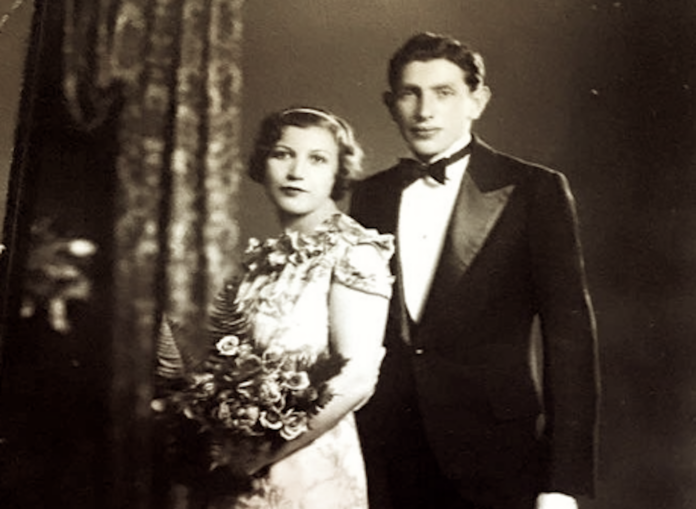
“You’ve Officially Become Papa!” That’s what my young son Jared recently wrote after I sent him the same Whole Foods shopping trip photo five times.

My dad was Poppa to his grandkids and great grandkids. He lived to maybe 94, or so, and died on December 5, 2005. I’m not sure how old he was. He was born in Chicago around 1911, but his birth certificate is not on file. The family lore is that it was destroyed in a fire—but there’s no record of any such event since the great Chicago fire of 1871. You would think Poppa’s fire would be noteworthy, as it likely involved thousands of unnamed and legally unborn.
Even the day of the year is unknown. Poppa’s mother Tillie described it in Yiddish as “the zweiten tag nach (or perhaps) noch Pesach”— the second day of or after Passover. The problem is that Passover occurs every year on different dates of the Gregorian calendar. And even if we knew the year, was it the second day of Passover or the second day after the holiday was over? Complicating this further, some Jews celebrate the holiday for seven and others for eight days.
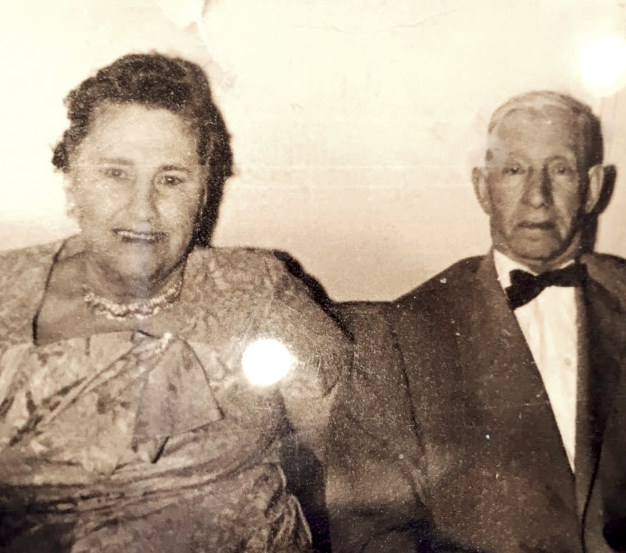
Poppa’s given name was Leo. He adopted a birthday that allowed him to go to work for the Santa Fe Railroad as a teenager. He never left until forced to retire. He turned 65 when he was maybe 62. The railroad insisted he go when he didn’t want to, although in typical Poppa fashion, he figured out how to postpone his leave-taking for awhile.
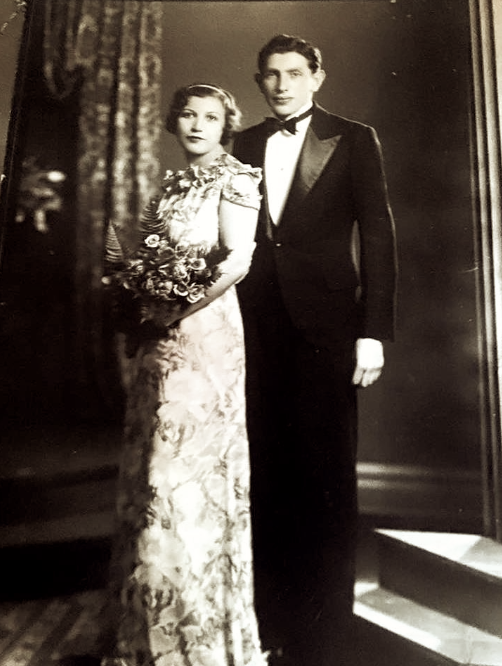
Poppa died after my mother Helen, both of whom moved from their long retirement in the Jewish paradise of North Miami Beach to the Kingston Residence of Santa Fe nursing home. Some months after their 68 or so year marriage ended with her death in 2003, he successfully moved from independent to assisted living, leaving behind his three imaginary roommates. He got along with two of them, but was glad to be rid of the contentious third.
Poppa knew the art of the deal, although he too was often not successful. In his youth he delivered and was paid for illegal kegs of hooch, moonshine. They were transported by him to their destinations under blankets in a baby buggy. This after the Eighteenth Amendment to the Constitution, Prohibition, became effective in 1920 until repealed in 1933. The booze was owned and sold by his father Harry, and stored in the otherwise empty third floor flat of their southside apartment building.
In one awkward moment, Poppa stole a keg from his father’s inventory in order to finance a cross-country freight train trip with his friend Dan Lazar. Unfortunately, the keg slipped from his grasp, rolled down the stairwell, broke open, and spilled its contents and smell. In this enterprise, Poppa first met and dealt with some of the infamous Chicago Jewish mafia. He described being witness to a speakeasy mob killing and befriending, amongst others, a local bootlegger named Abraham “Bummy” Goldstein. As he grew into adulthood, these acquaintances continued. Local Democratic politics and mob activities were often interconnected.
Poppa’s hangout of choice was Little Jack’s Restaurant on West Madison Street . Little Jack Levin was a longtime Chicago Park District Commissioner. The restaurant was noted for its cheesecake and as the gathering place for Chicago politicians and mobsters. Poppa often brought me there while he huddled with Frank Levin, the owner’s son and the restaurant’s operator for many years. They were buddies and served together in the Illinois State Militia. Poppa wasn’t drafted during WW II because his job at the railroad was considered essential. Once a week he put on his uniform and marched inside the local militia armory; usually I was there to watch. One or two weeks a year he would go off to a training camp. Both he and Frank Levin became officers and, I think in 1943, went to fight the floods in downstate Illinois.
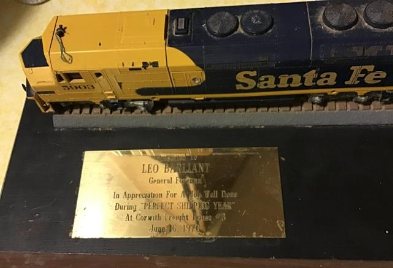
Poppa reached the highest level of any Jew at the Santa Fe Railroad. At the pinnacle of his long career, he was appointed General Warehouse Foreman of the huge Corwith Freight Yards loading dock on the southside of Chicago . As usual, he played the angles. For years, he kept a notebook of the payday loans he made to railroad employees at interest rates up to 20% a week. While in high school and college, I would help him rent temporary storefronts and stuff their innards with railroad salvage. He got an amazing assortment of goods by submitting the winning, and only, bid to his railroad buddy. We would sell the items at bargain prices and the cash, hidden in places only he knew, financed our summer vacations and our new 1948 Hudson Sedan.

Our Jane Adams Housing Project apartment and, later, our Chicago cottage home in the west side Austin neighborhood, never lacked for the railroad’s seasonal freight–watermelon, Christmas candy, pumpkins, bottles of liquor; but most important was the heavy 14-tube black and white Motorola TV with a 7 inch cathode ray screen. It arrived at our home in about 1947. No one we knew had a TV and we were neighborhood celebrities. I remember the first televised Joe Louis championship fight night, maybe with Jersey Joe Walcott, when we turned the screen to the window so that neighbors could watch. The TV was intended as the prize for an annual Santa Fe Railroad freight yard safety campaign. Poppa was directed by his superiors to purchase the prize. He was given money to do so maybe 7 or 8 months before the contest concluded. He immediately bought the TV and brought it home. The disaster occurred months later when we had to say goodbye to it. I saw it adorned with a ribbon and taken away to be awarded to the winner. After a short time, the addiction was too strong. Poppa raided one of his secret money caches and came home with a gigantic 10 – inch black and white.
It, in turn, was replaced in the early 1950’s by a maybe 26-inch black and white TV manufactured and sold by Earl “Mad man” Muntz. Muntz bombarded Americans with ads that constantly changed the sale price. I pleaded with Poppa and he bought it. It proudly sat in the center of our cottage’s knotty pined basement den.
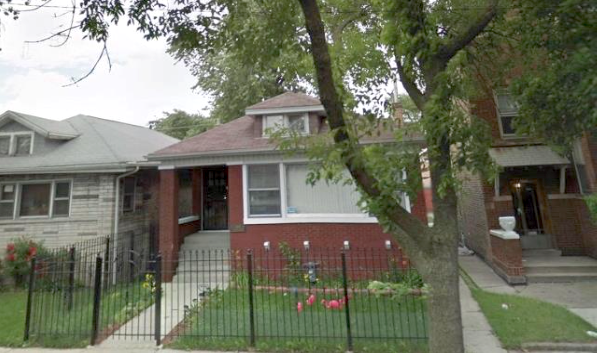
Poppa was a good and loving husband and father to me and my sister. He was sentimental, mostly kind and loyal to his friends and family. The stories are endless. He finished high school, but he was no scholar. He was a competent wedding violinist, ballroom dancer, expert fisherman, and adequate 16-inch softball player. His primary job was to keep his family alive, clothed, fed and sheltered; and he accomplished that.
As the years went by, he became more eccentric, finally ending with Lewy body dementia. He demonstrated human frailty, even perhaps petty criminal activity, as well as racial and gender bias; yet he did good.
Keep this in mind when you assess your relationships with those who have gone wrong at the moment.
